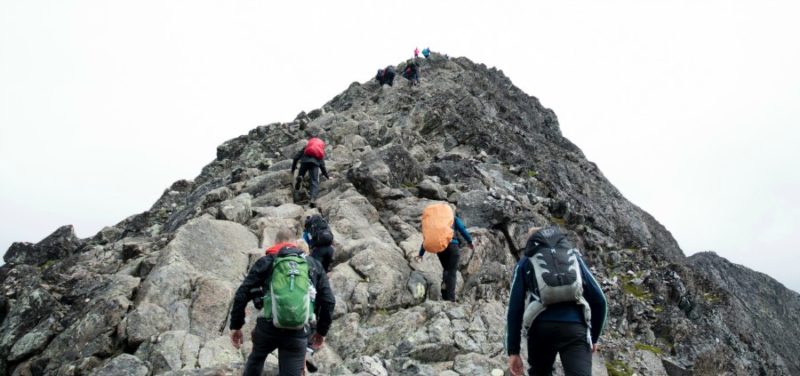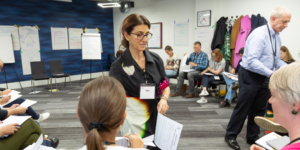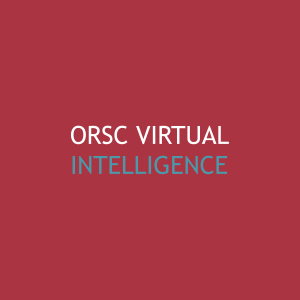Course Outline
Geography gives a broad and practical approach to working with many of the functional structures of relationship. When we start to develop relationships — at work or in our personal lives — we create semi-permanent structures. This course explores how to recognise and nurture those structures.
The two primary components of the course are ‘Lands Work‘ and ‘Roles‘. In Lands Work participants develop an awareness of the diversity and differences that people add to a system, and how to proactively create from these differences, while flexing their empathetic abilities. Roles examines the distinction between the person and the many roles that can be occupied, consciously, intentionally and skillfully. By depersonalising the roles that exist in a system, we open up new possibilities for how those roles interact.
Diversity is a requirement for creativity — it provides the raw materials necessary for a dynamic yet stable relationship system capable of evolution. Yet differences, when not embraced, can also create confusion, misunderstandings and barriers to growth.
- “Why don’t you do things my way?”
- “Why don’t you value what I value?”
- “Why don’t you approach problems the way I do?”
- “Why can’t you be more like me?”
If you’ve ever worked with someone stuck in this kind of thinking, you will appreciate the simple and elegant tools this course provides for moving beyond this place.
Note: You must have completed ORSC Module 2: Intelligence to enrol on this course.
Learning Outcomes
By the end of this course, you will:
- Understand the function of relationship structures for providing stability to relationship systems.
- Recognise the need for periodic change in these structures, in order to avoid ‘role nausea’ and role rigidity.
- Have a concrete model and tools for working with diversity issues in relationships. (‘My Land, Your Land, Our Land’.)
- Be able to assess the role of internal aspects of selves (‘secret selves’) in relationship, and have a tool for coaching them.
- Be aware of the impact of cultural biases on relationship systems and have tools for coaching that impact.
- Have tools for creating greater empathy around individual and organisational differences, and be able to creatively harness those differences.
- Be equipped to help teams look differently at a role that needs to be occupied, with an ability to move beyond blame, guilt and personal failure.
Who Would Benefit From This Training?
- Experienced coaches who want to develop a new market niche — coaching relationship systems in any industry.
- Personal, executive and organisational coaches who want to skill-up to be able to work with groups of clients.
- Allied professionals already engaged in working with groups, teams and partnerships.
- Mediators, lawyers, couples and family therapists.
- OD consultants.
- Anyone who relies on relationships to drive their business.
What to Expect
- This course takes place over three consecutive days at a central London venue (usually Friday to Sunday), from 09.30 to 17.30. Course dates that fall on a Sunday run between 09:00 and 17:00.
- All training is led by ORSC Faculty members who have trained with CRR Global’s founders, Faith Fuller and Marita Fridjhon. Faculty members are highly qualified and experienced coach practitioners. They’ll share real-life examples of the successful application of ORSC tools and skills.
- We practice experiential learning, engaging a variety of teaching methods in our training delivery. Modules are hands-on and immersive, with a focus on participation and practical experience. There will be numerous opportunities for you to coach, as well as to receive feedback on your newly acquired relationship coaching skills.
- To further embed the learning, participants are requested to arrange from within their own network an actual relationship to coach.
- We also encourage further reading and will happily provide a bibliography.
- At the end of the course you will be issued with a Certificate of Completion letter. By completing this course you’ll qualify for 18 Continuous Coach Education Units.
Fees
£1,480.00 per person (ex. VAT)
[mks_separator style=”dashed” height=”1″]






